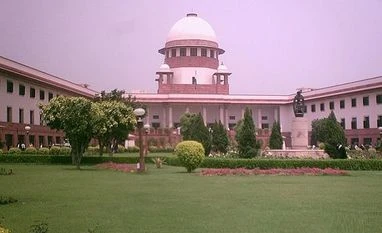The Supreme Court today sought the opinion of the attorney general on the issue of video recording or live streaming of judicial proceedings of cases, like that of Aadhaar, which have constitutional and national importance.
A bench of Chief Justice Dipak Misra and justices A M Khanwilkar and D Y Chandrachud said it will first hear the top law officer and the bar before passing any order on the issue which has been raised by senior advocate Indira Jaising and advocate Mathews J Nedumpara in their respective pleas.
Jaising said that the matter was of extreme importance and should be referred to the Constitution bench to ensure that the proceedings in matters of national importance can be video-graphed.
She contended that matters being heard by the Constitutional bench of the apex court are those which the whole country should be able to watch.
Attorney General K K Venugopal said that in some countries the proceedings in constitutional courts are transcribed and submitted and that he would apprise the court of his stand on the next date of hearing.
The court has now fixed the plea for further hearing on May 3.
Also Read
Jaising said that if live streaming of the judicial proceedings was not permitted, it should allow video recording of the same and the videos can be preserved and kept in the Supreme Court Museum.
In a bid to bring in transparency, the top court had last year allowed the installation of CCTV recording with audio in trial courts and tribunals of each state.
Jaising, in her plea, has claimed that in western countries this system is in place and live streaming of court proceedings, including that of the International Court of Justice, are available on YouTube.
Another petition, filed by Nedumpara, has sought video and audio recording of the court proceedings for enhanced transparency and greater accountability.
Apart from these two, a third plea has been moved on the same issue by a law student who has sought setting up live streaming rooms within the apex court premises and granting access to legal interns.
The plea, filed by Swapnil Tripathi, a student of National Law University in Jodhpur, has asked for requisite guidelines to facilitate witnessing of proceedings for the interns.
The apex court may place restrictions on such videography and live streaming of proceedings, in cases where there are "countervailing interests of privacy as in family law cases, criminal law cases, as well as in the interests of witness testimonies in criminal matters", she said.
)